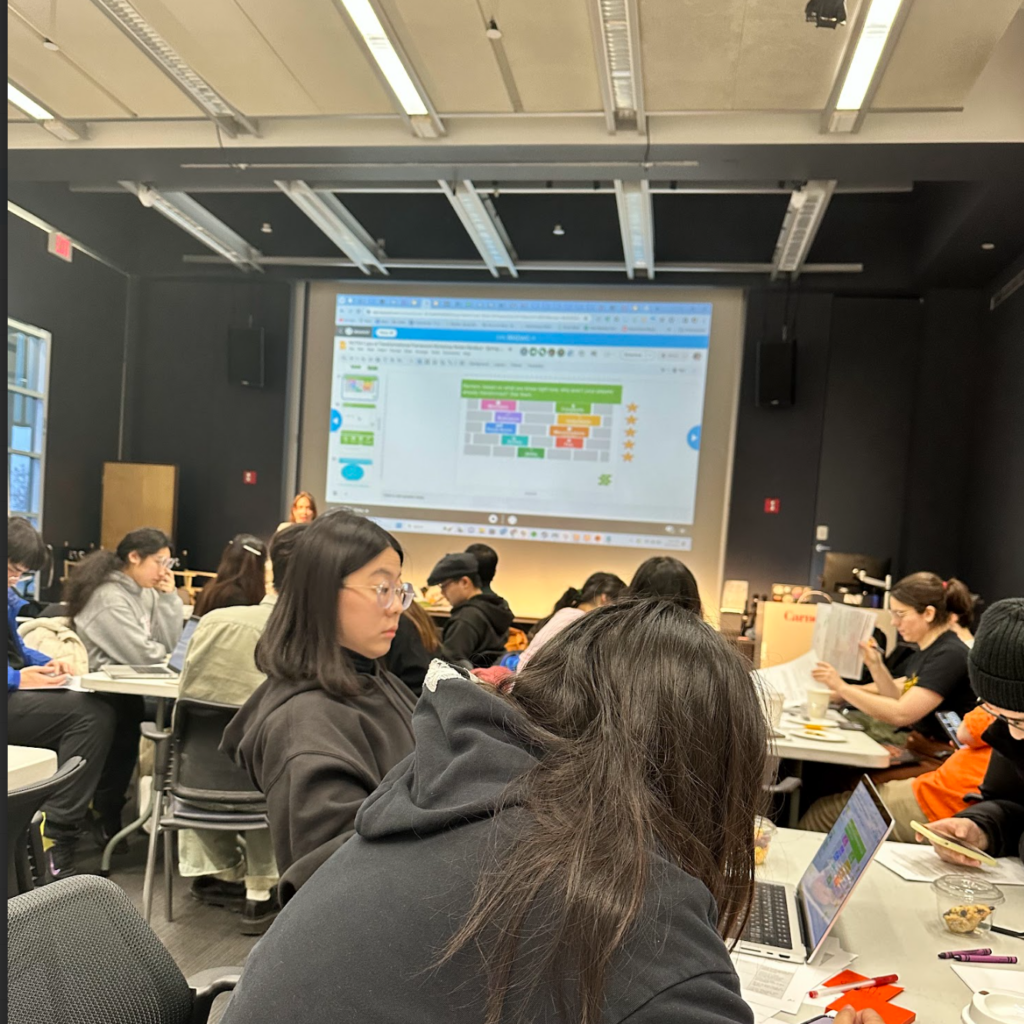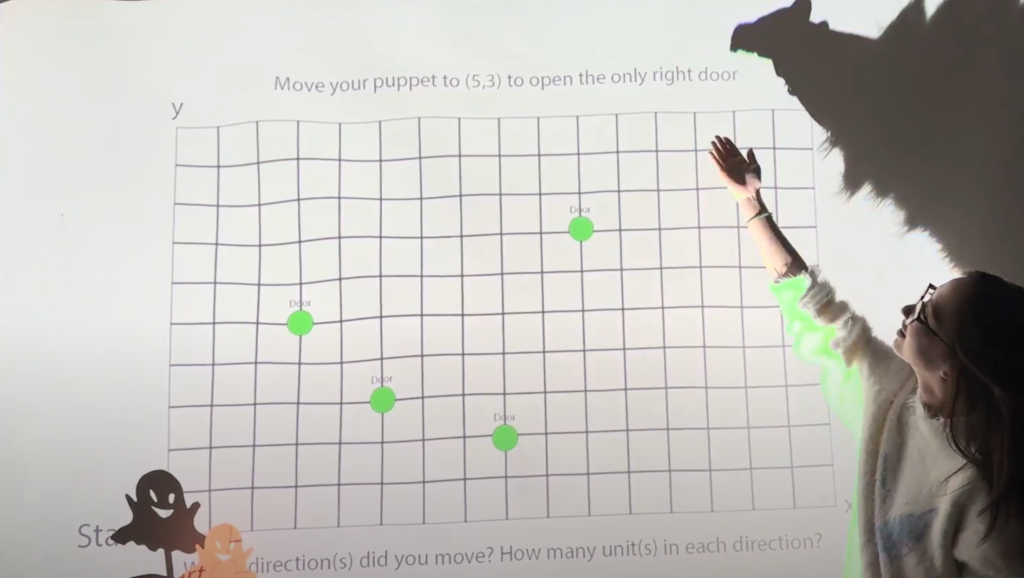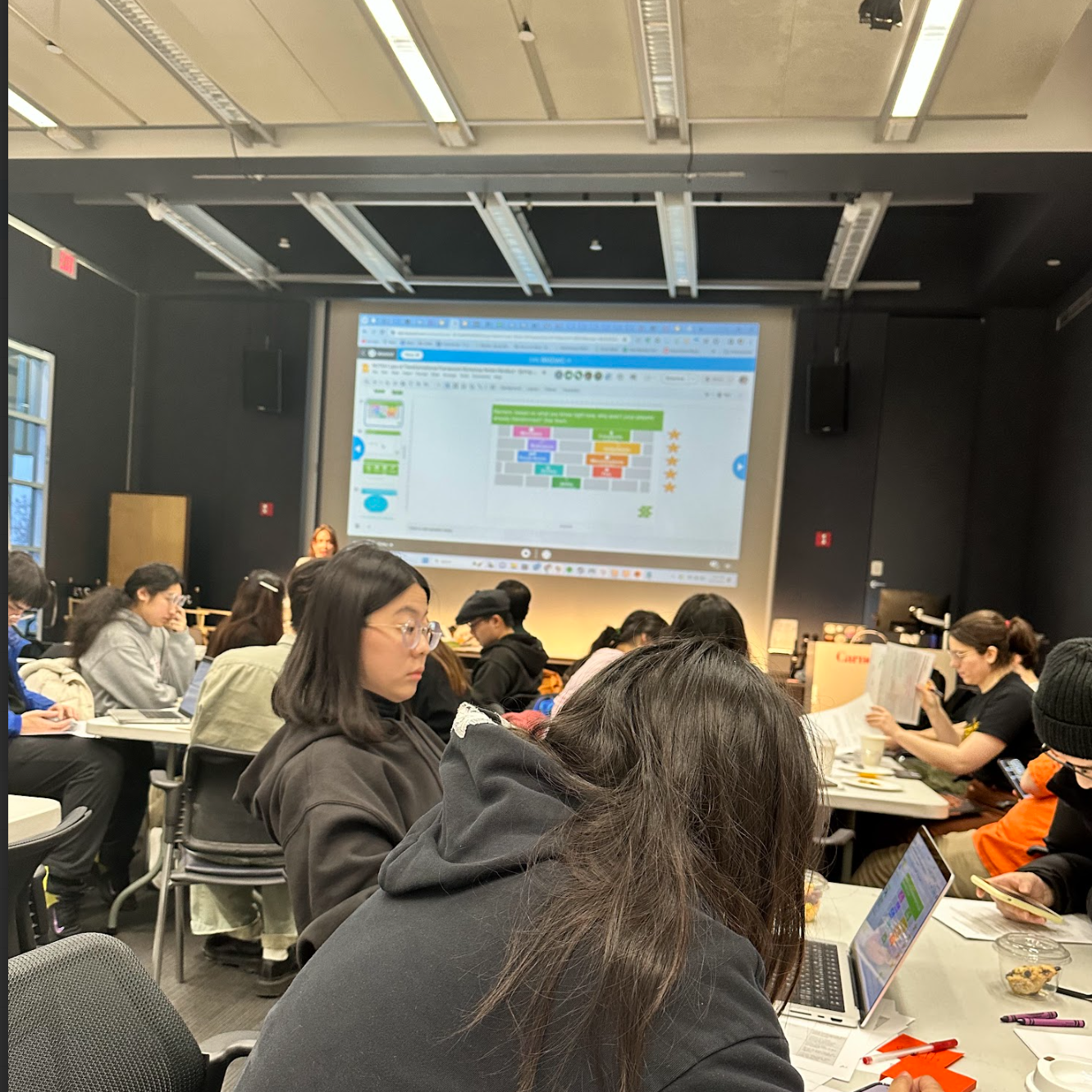Overview:
During week two, Puppamatics were focused on design process. We continued to do research on our problem space, tested out some ideas, and met with our client for clarity. We attended two workshops; Playtest to Explore and Transformative Play. With the knowledge we had gathered, our team began defining our first prototype and preparing for our 1/4s presentation.
Week of Workshops:
This was the week of workshops where we met with professionals about tackling our design process from different angles.
Last week we had prepared a “recipe” for our composition box. In short, we were picking an experience we want to take the guest through and fleshing that out through various questions. What actions can the player perform? How do they make the player feel?
At the Playtest to Explore Workshop, we pinned up our “recipe” to the wall, different project groups came around and gave us feedback. They asked questions about the relationship between math and puppetry and analogue v. digital components. The workshop overall, taught us about the necessity of playtest and how we can use them to refine our designs.
Later in the week, we also attended the Transformative Play Workshop. The workshop was about understanding the impact we want to have on the players. Our project focuses on three main transformations:
- Experience – We are designing around a specific experience; puppet creation. Further, we are assisting an already existing puppet making workshop. After using our tool, we want kids to feel like this is fun.
- Belief – For most people, this will be their first time making a puppet. Puppet creation can be a daunting task as there are many parts and a lot of preparation. We want kids to believe this is doable.
- Skill – Like any process, practice makes perfect and puppet creation is a very involved task. Our tool should help enough that kids feel like this is easy.

Client Meeting:
This was our first meeting with the client Lou Karas. She is the Director of Arts and Education at West Liberty University. Our goals for the meeting were to introducer ourselves to Lou and get clarification on the project’s purpose. From last weeks research, we had already made a small demo using shadow puppets and projection. We presented our testing demo and asked for feedback from Lou. This way, she can see our vision of the project and compare that with her vision for the project.

From this meeting collected the following information:
- We figure out that the client is not looking for a math game with puppets in it, but a tool that could help 4th and 5th graders produce better puppets with the help of math.
- This is where she gained the idea from https://momath.org/archived-events/events-2023/puppet-making/
- The kids struggle with making a good puppet even though they have their sketches.
- Converting 2D sketches into 3D objects
- The client wants it to be an indirect learning experience.
- Techwise, the client is looking for a mix of tech/no-tech tools for a diverse learning experience.
- Perhaps a mobile tool that could be reused and be apply in different situations.
- The client has a puppet-making workshop for students, either at the makerspace or at local schools. Our project should be something that helps solve the problem.
- The client at the same time liked the storytelling that we did, and perhaps we could find a way to integrate the idea into our project.
- The client is also flexible with the target audience age range. It doesn’t necessarily have to be 4th and 5th graders.
Preparation for 1/4s and Playtest:
As the week came to a close, the team started looking towards week three. In week three, we would have our 1/4s presentation. There, we will have 15 minutes to present and discuss our direction for the semester project with a 7 rotating groups of faculty. We divided the presentation into three sections; problem space, research summary, and user experience design. Producers worked primarily on the presentation posters while programmers continued their research and artist focused on playtest materials.
We had been in contact with Anthony Palyszeski for a while now and were in the process of nailing down a playtest in week three. For the playtest, we were going to divide students up into groups with different level of instruction to see the students capabilities in puppet making and where they get stuck. Artist were in charge of creating the instructions and making puppet references for the children.
Next Steps:
With 1/4s and the playtest in the future, our team was preparing to reshape our vision of the project. Week three would be a time for feedback and reflection.
